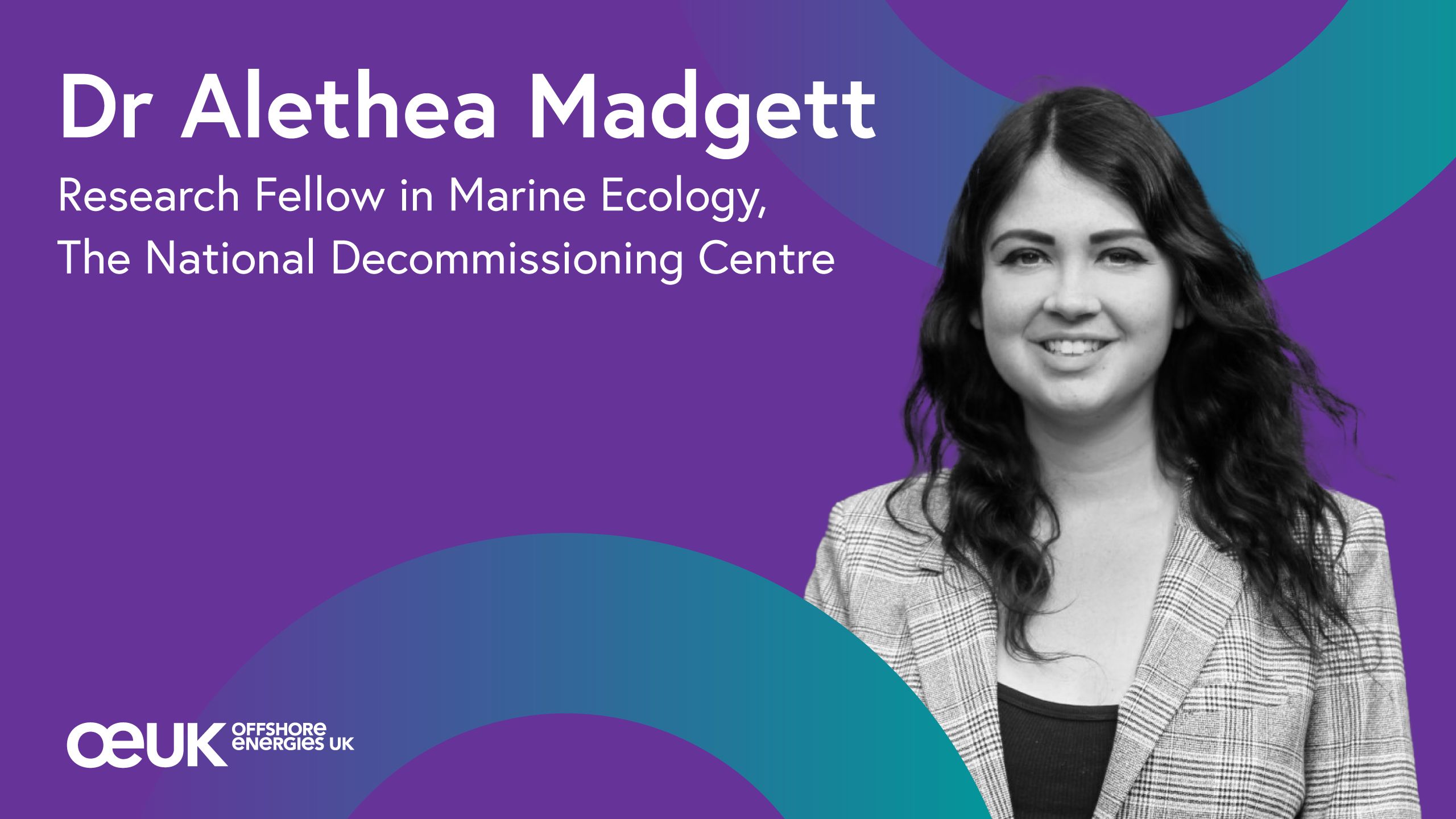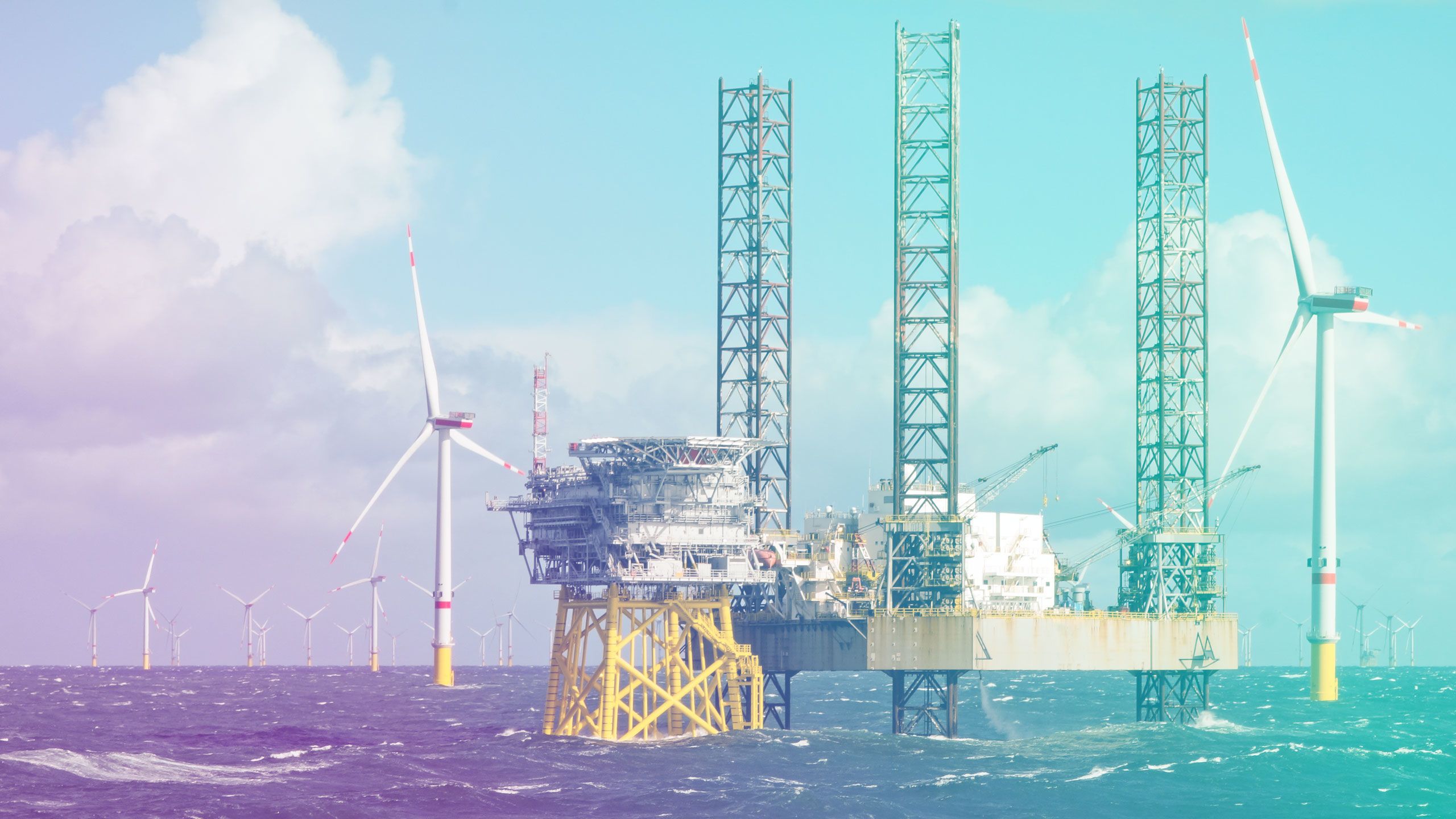
“For someone looking to join the sector, I would suggest keeping this evolving energy landscape in mind and consider developing skills that are transferable to other areas to future-proof your career.”
Alethea is a Research Fellow in Marine Ecology on the National Decommissioning Centre’s Chevron Partnership. Her role focuses on the energy transition, and the results of her research influence Chevron’s decommissioning plans. She studies the marine ecosystem habitat value of oil and gas structures and is considered an environmental expert.
My interest in marine ecology can be traced back to a project I completed with Marine Scotland Science during the Honours year of my Forensic and Analytical Science degree, where I assessed baseline information for hydrocarbons in deep waters to the West of Scotland by collecting fish, water and sediment samples. I thoroughly enjoyed this work, so then I went on to complete a PhD at Robert Gordon University, again in collaboration with Marine Scotland Science, but this time studying marine food webs.
After completing my PhD, I accepted a role as an environmental consultant, where I worked on decommissioning appraisals. I soon realised that oil and gas structures had impressive habitats associated with them. I found it difficult to understand why, at a time when biodiversity is in a rapid state of decline, flourishing habitats developed over many decades, which are key to marine ecosystems, are destroyed when fully removing oil and gas structures. During this period, I was also the data facilitator for the INSITE programme, which is an independent science programme examining the effects of man-made structures on the ecology of the North Sea. I could see first-hand the fantastic research being conducted in this area, and having always felt that the key to change is the power of partnership, I wanted to be part of the link between academia and industry.
Now in my current position as a Research Fellow in Marine Ecology at the National Decommissioning Centre, I focus on the functional ecology aspect of habitats associated with oil and gas structures to better understand their long-term habitat potential. I do this to determine if these structures function similarly to comparable natural reefs, as whether or not they do is an ongoing debate in the sector. It is imperative that industry invests in and adopts sustainable practices in the energy transition, and I take great pride in the fact that Chevron’s decommissioning decisions can be influenced by the results of my research so that the environmental impact is reduced.
There is a real drive for change in the energy sector, and crucially, I’ve noticed that communication and partnership between industry and academia is improving. I have been fortunate to work with sector professionals and academic experts across the globe on some really exciting projects, and together, we are driving progress in the transition. For example, I’m currently on the research team for multiple studies based in the Gulf of Thailand and Western Australia. Following a data collection trip to Thailand, I am now analysing the scientific data from stereo-ROV surveys of the country’s first-ever “Rigs-to-Reefs” pioneering project, turning retired platform jackets into marine habitats, and look forward to publishing the results soon.
There are many roles within the oil and gas industry, and with so much dynamism, it is important to keep on top of industry trends and innovations. For someone looking to join the sector, I would suggest keeping this evolving energy landscape in mind and consider developing skills that are transferable to other areas to future-proof your career.
How you can have your say...
We need reasons to be hopeful, and we hope you’ll find them while exploring our site. We’d love to hear any feedback, stories or questions you have as you join us on this journey.
Get in touch at social@oeuk.org.uk

